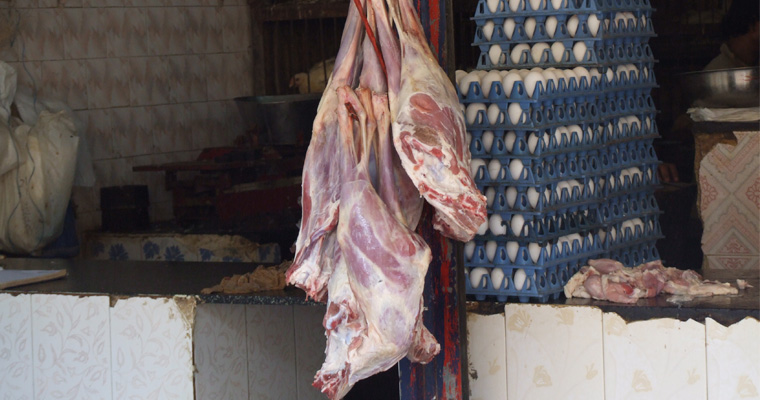The shortage of beef caused by curbs on animal slaughter imposed by the Bombay High Court Bench is turning out to be a major hurdle and test for Chief Minister Manohar Parrikar, in his on-going efforts to consolidate the newly found electoral support his party got from the Goan Catholic community.
A hint of Catholic angst over the beef shortage has come from the Council for Social Justice and Peace, viagra 40mg the social arm of the powerful Roman Catholic church of Goa.
In an unusually sharp critique of the High Court order, the Council’s executive secretary Fr Savio Fernandes termed it “an infringement on the religious rights of minorities in Goa”.
Father Savio’s statement issued earlier this week placed the ball in the government’s court, criticising it for “failing to intervene” appropriately to overturn the curbs imposed amidst allegations of irregularities at Goa’s main abattoir.
He said the council was disappointed that the government failed to act with fairness and justice to the Catholics and Muslims of Goa, for whom he said beef was an essential part of the diet.
Father Savio also accused the Parrikar government of failing to act with appropriate urgency to ameliorate the situation and undo the beef shortage in the state.
Butcher shops in Goa’s markets have virtually shut and the cold storages across the state’s cities, towns and villages are struggling to service demand both from the resident population as well as the tens of thousands of Western tourists who arrive annually.
Goa is estimated to consume around 10 to 12 tonnes of beef daily and the shortage following curbs imposed by the High Court on the government-run state-of-the-art abattoir at Usgao has sent prices of the red meat soaring.
“Prices of beef have doubled. I bought the meat from a cold storage on Tuesday for Rs 300 a kilo,” said Joao Fernandes, a non-gazetted official of the state government. Before the shortage the average price of beef was Rs 150.
Meanwhile, aware of the political implications of the beef shortage imbroglio if his government is seen as not doing enough, Parrikar is weighing various options, including approaching the court for a review of its orders or even going to the Supreme Court to seek lifting of the curbs on animal slaughter.
The chief minister was not available for comment despite several attempts to contact him on phone, but sources in his office said he was seized with the matter and is working out a strategy.
Earlier, when the High Court passed the interim orders two weeks ago, Parrikar went out of the way to say his government would “passionately ask the court to allow the government abattoir to resume slaughter of bulls and he-buffaloes.”
The BJP in other states is known to oppose ‘cow slaughter’ as the animal is holy in Hinduism.
But the High Court did not pay heed to the government’s pleas and banned import of bulls for slaughter in Goa and also appointed a committee to supervise the abattoir and ensure animals under 12 years of age are not butchered.
The courts directions came while adjudicating the petition filed by Govansh Raksha Abhiyan, Goa (Cow Protection Movement), an NGO known to have filial links to the Parrikar-led BJP in Goa.
Three different laws govern animal slaughter in Goa, including one that bans cow slaughter (meaning the beef one eats in Goa comes from bulls).
Of the other two laws, the first requires animals to be certified by a veterinarian before they are slaughtered and another law prevents the slaughter of scheduled animals (protected species).
According to allegations made by the petitioners, young bulls were being illegally cleared by the government veterinarians who are posted at the abattoir.
The Church affiliated body is not alone in its criticism of the government on the beef shortage issue.
Leaders of the Opposition Congress too were quick to take pot-shots at Parrikar with its South Goa MP, Francisco Sardinha leading the tirade.
Sardinha said the beef shortage was anti-minorities and he along with other leaders of his party demanded that the government play a proactive role to correct the situation.
When asked for his comments on the issue, Margao based lawyer Radharao Gracias was critical of the court’s decision.
“When passing such orders, courts should consider the impact they can have on the local population, especially on a matter of food habit. An alternate arrangement should have been simultaneously made,” said Gracias. “Nevertheless we know that the affairs at the Goa Meat Complex have been shady for a long time. In fact, when I was a legislator in the mid-1990s, I had raised the matter on numerous occasions in the House. Hopefully now that the High Court is seized of the matter and is scrutinising it, things will normalise at the Goa Meat Complex.”
Meanwhile, Goa’s hotels and restaurants too have begun to feel the pinch of the shortage.
Eddie George, who runs the beef speciality George Bar and Restaurant said he’s waiting with baited breath for the Government to “do something”.
“Prices of beef have doubled but we have not changed the prices on our menu,” Eddie told Streets, adding he will not be able to sustain the high input costs for too long.
“In a way it’s good that the court is scrutinizing for hygiene and ensuring the beef traded in Goa is healthy,” Eddie said, but wondered aloud why the same yardstick does not apply to poultry products and other meats like mutton.
Public ire against the shortage of beef is even greater in the Salcete sub-district in South Goa, the Catholic heartland of Goa.
“We can’t go on without beef for long, neither can we afford to pay exorbitant prices for it. As it is life is getting tough with prices of essentials rising and now even beef which was relatively cheaper than most other meats, is getting expensive,” lamented Stephen Fernandes, who works at a five-star hotel in South Goa.
The message is clear. The State cannot continue to let things be and Parrikar will have to come up with a viable strategy to overcome the shortage if his government wants to avoid the ire of Catholics, who showed signs of warming up to his party at the last elections.
.
.
.




